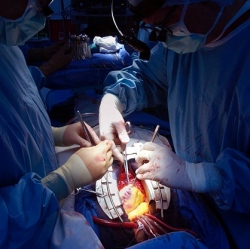
Scientists have uncovered a technique that sees cancerous cells transform back into normal healthy cells. The method relies in the introduction of a protein called E47, which bonds with particular DNA sequences and reverts the cells back to their original state.
"For the first time, we have shown that over-expression of a single gene can reduce the tumor-promoting potential of pancreatic adenocarcinoma cells and reprogram them toward their original cell type," says Pamela Itkin-Ansari, adjunct professor at Sanford-Burnham and lead author of the study. "Thus, pancreatic cancer cells retain a genetic memory which we hope to exploit."
For their research, the scientists developed pancreatic cancer cells with heightened levels of the E47 protein. They found that the protein then controlled genes responsible for growth and differentiation. It halted the cancer cells in the growth stage and caused them to revert back to acinar cells, the healthy cells that produce pancreatic juice.
The researchers also conducted in vivo studies where the reprogrammed cells were introduced into mice. They found that the animal’s propensity to form tumors was substantially less than those with regular pancreatic cancer cells.
"Our next step is to test primary patient-derived tumor tissue to determine whether E47 can produce similar results, potentially providing a novel therapeutic approach to combating this highly lethal disease,” says Itkin-Ansari. "Additionally, we are screening for molecules and potential drugs, that can induce over-expression of E47."
